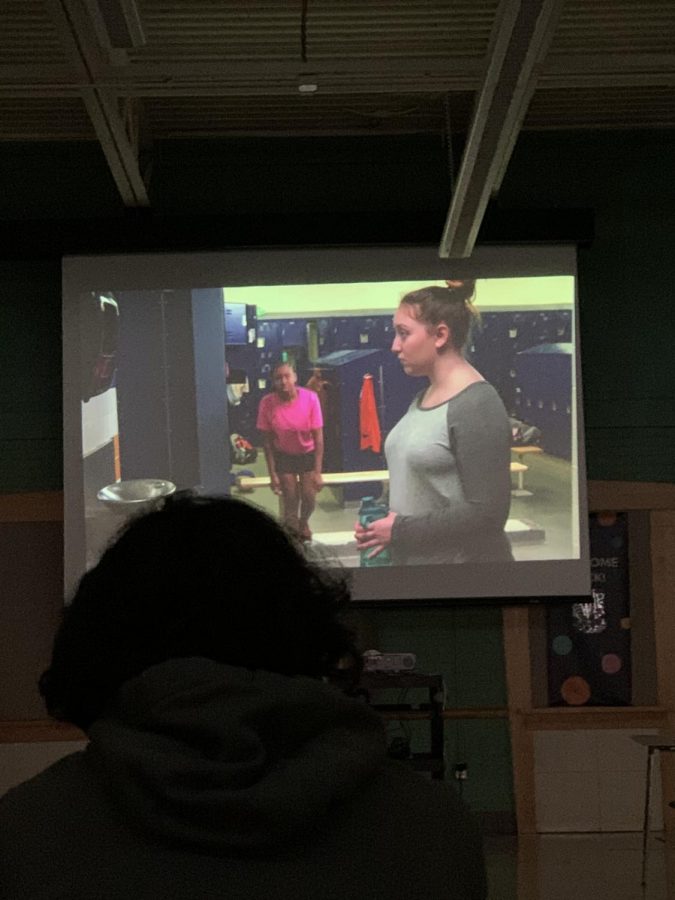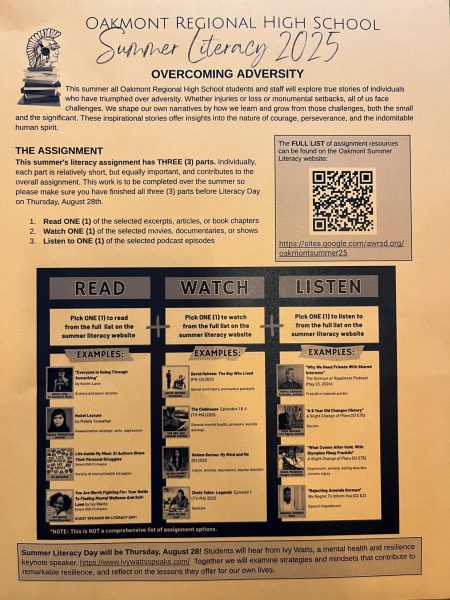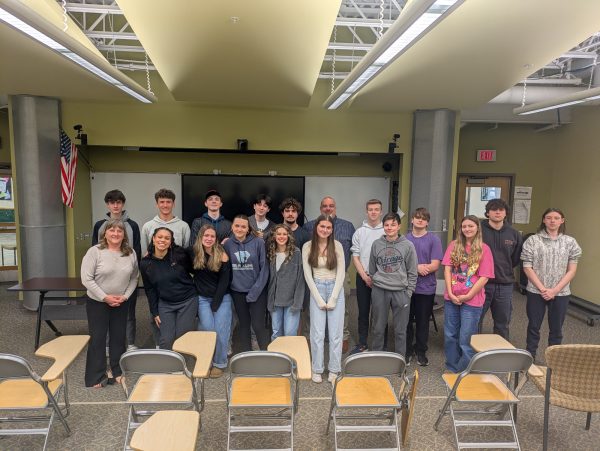Oakmont teaches attention to warning signs
Each year, Oakmont Regional High School educates the freshmen class on signs of depression and suicide. The guidance team had set up two meetings, one for each cohort to watch in person, and presented ways of detecting people who are suicidal.
Oakmont’s guidance team informed students that suicidal thoughts and actions usually stem from a mental illness, the most common of them being depression. Mrs. Amy Dubovick introduced this by reminding the students that these mental illnesses are uncontrollable and are easily curable. There are various methods of getting help, like going to therapy, getting prescribed medication, or even finding a hobby that you enjoy.
Guidance used a program called Signs of Suicide to show how these situations are managed. It highlights the acronym ACT through each video. The first letter A stands for acknowledging the issue. If someone you love is struggling, you want to detect the warning signs and acknowledge that someone needs attention.
What are the warning signs of depression and suicide? There are a multitude of different warning signs from self-harm to lack of energy. Someone could have an extreme behavior change, like pro-longing sadness or intense anger. Another common warning sign is for a student to sleep a lot and not get out of bed. They might start wearing long sleeves in the summer to hide their arms. There are tons of different warning signs, and being aware of these is the first step to take.
Oakmont provided videos with examples of all these warning signs in action through the program. They showcased three videos, and every situation played out differently. They showed what happens when you don’t acknowledge these warning signs and why taking action will always be the best thing.
The next step is to remind them you care. You want to consolidate and let the person know that you are here to help, and you can always be there. A big mistake students make is when a friend shows these symptoms that they are struggling but keep quiet in fear their friend will get mad. Regardless of how upset your friend will be, you have to tell them that you cannot keep it a secret. Remind them how much you care over and over, because that is the one thing they feel they are lacking. Be aware they might get mad at you at first, and it can feel intense. After they get help, they quickly realize that your intentions were the most beneficial thing.
The third letter of ACT is to tell a trusted adult. You can talk to your parents, teachers, administrators, bosses, anyone who you feel will take care of the situation the right way. All the adults at Oakmont are trained for these situations and are willing to help you out.
One of the videos showcased involved a brother and a sister, where the brother was drinking and showing these warning signs. Mrs. Robin Ewell explained how people who are substance abusers are at higher risk for suicide. Alcohol or drugs can severely cloud your judgment. It can cause people to tunnel vision and not think things through.
If you or a loved one need help, do not be afraid to contact an adult or advisor. If you need help reaching out to someone, you can text ACT to 741741 or call the suicide prevention lifeline at 1-800-273-TALK (8255).

Theresa Brouillet is currently a senior at Oakmont. In her free time, she mostly focuses on her two jobs. She has a job at the Blue Moon Diner as a waitress/trainer...







